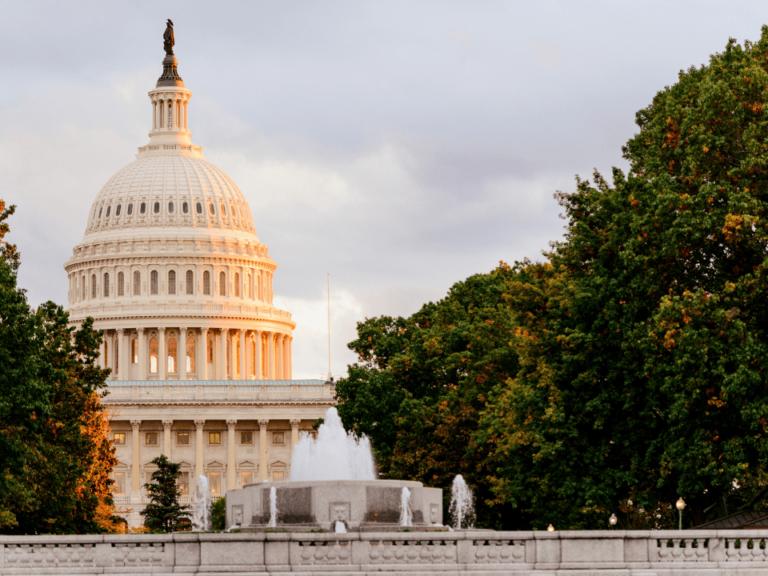

As oncology contemplates the potential impact of a second Donald Trump term on cancer care and research, The Cancer Letter has compiled a list of guest editorials, news analyses, and data-driven reports that this magazine published during his first term.
Days after the 2016 election, there were uncertainties about President Barack Obama’s signature healthcare programs—the Affordable Care Act and the National Cancer Moonshot Initiative (The Cancer Letter, Nov. 10, 2016).
“We are in a historic time in cancer research,” Elizabeth Jaffee, co-chair of NCI’s Cancer Moonshot Blue Ribbon Panel, said to The Cancer Letter at the time. “We hope we will not lose the momentum.”
During his first term, Trump focused on contracting ACA’s reach, reducing drug prices, and increasing the importation of foreign drugs.
Constant battles over appropriations left many in oncology concerned about paylines and the future of cancer research.
“The collective impact of this scattershot approach to research funding is devastating,” Candace S. Johnson, president and CEO at Roswell Park Comprehensive Cancer Center, wrote in 2019. “The field of oncology is losing talented young people to other fields because they understandably aren’t willing to work in such a climate of instability. Worthy ideas sit on a shelf, undeveloped, while cancer researchers in other countries move ahead around us.”
However, many of Trump’s more controversial priorities drew objections and were blocked by Congress.
Toward the end of his first term, congressional support for biomedical and cancer research remained solid and appropriations increased. However, the COVID-19 pandemic had deepened a growing feud between Trump and public health experts, FDA, and NIH, leading experts to fear greater efforts to cut research funding (The Cancer Letter, Nov. 6, 2020).
These fears were echoed in the 2024 campaign. “[Trump] has not clearly articulated a health policy agenda, and the modern GOP has evolved in a much more populist direction than it stood even four years ago,” Samyukta Mullangi and Debra Patt wrote in a recent guest editorial in The Cancer Letter. “This has important implications—for example, during his four years in the White House, Trump sought to contract the reach of ACA in multiple ways.”
While Trump has been less vocal on healthcare policies during the 2024 campaign, he has indicated that he will allow Robert F. Kennedy Jr. to “go wild” on health care, and Kennedy stated this week that there are entire FDA departments that “have to go.”
An article about oncology leaders’ reactions to the 2024 election results appears in this issue.
Here is The Cancer Letter’s coverage of Trump’s first term:
On funding cancer research
Every year in office, Trump’s budget proposals included major cuts to NIH and NCI. However, bipartisan resistance in Congress produced four strong years of cancer research funding.
In March 2017, Trump launched his first effort to cut NIH funding for fiscal year 2018:
- Republicans Ditch 2017 Appropriations To Tailor Spending to Trump Priorities, Nov. 18, 2016
- Trump’s proposed 2018 budget launches a surprise attack on NIH, March 17, 2017
Also in that issue:
- John Porter: If you want to make America great, you don’t take America’s worldwide scientific lead and cut it
- Nancy Davidson: This is the time for investment, not for retreat
- Ellen Sigal: This is not a grasstops issue anymore, this is really grassroots, conversation with Ellen V. Sigal and Ryan Hohman
- Blase Polite: This was put together by folks who have no sense of how research is done
- Patricia Goldsmith: This is the “Moonstab,” or, maybe, the “Moonshaft”
- “Duplicity” at NIH? White House spokesman Sean Spicer says the cut isn’t really a cut
- Beth Caldwell: People like me will die because of these cuts
- Doug Lowy: We should continue to focus on the FY17 appropriation, March 24, 2017
- Rick Klausner: This is a profoundly disturbing statement about dramatically de-prioritizing research, science, and biomedical research. Conversation with former NCI Director Richard Klausner, March 24, 2017
- Biden: Trump’s cuts would set back cancer research by 15 years, April 7, 2017
- Niederhuber on Trump’s budget blueprint: “We should not panic yet”. Conversation with former NCI Director John Niederhuber, May 12, 2017
- Trump would cut over 20 percent of NIH, NCI budgets in new FY18 proposal, May 26, 2017
- Senate appropriations subcommittee members vow to resist Trump proposal to cut NIH budget, June 23, 2017
- Guest Editorial: Medical research funding: Why we must keep our foot on the accelerator, by Michael A. Caligiuri, July 21, 2017
The final appropriation amounted to a 5.2% increase for NCI.
In 2018, Trump’s FY19 proposal offered similar cuts, which were again rebuffed by a Republican-led Congress:
- A confusing Valentine: White House proposes cutting NIH by 27 percent, and—at the same time—reverses the cut, Feb. 16, 2018
- Porter: I can’t tell you how the Trump administration gets its budget numbers
- New players, new strategies, new resolve raise NIH budget to new level, March 30, 2018
And again in 2019:
- Trump proposal for FY2020 to slash NIH by 12 percent, NCI by 15 percent, March 15, 2019
- Guest Editorial: The cost of underfunding research and the lingering dread of unstable funding, by Candace S. Johnson, July 26, 2019
- Trump approves $212.5M increase to improve NCI success rates; FY20 spending bills provide new funding for childhood cancer, raise tobacco-purchase age to 21, Dec. 21, 2019
And in 2020:
- Trump’s budget proposes slashing NIH, NCI, Feb. 14, 2020
Proposed vs. appropriated budgets during the Trump administration
| Fiscal Year | President’s Budget Proposal | Enacted appropriation | Senate majority | House majority |
|---|---|---|---|---|
| 2018 | NIH: $25.9B NCI: not mentioned | NIH: $37.31B NCI: $5.93B | R | R |
| 2019 | Initial proposal: NIH: $26.9B NCI: $3.76B Addendum: NIH: $33B NCI: $5.23B | NIH: $39.31B NCI: $5.99B | R | R |
| 2020 | NIH: $34.4B NCI: $5.2B | NIH: $41.69B NCI: $6.38B | R | D |
| 2021 | NIH: $38.69B NCI: $5.8B* | NIH: $42.94B NCI: $6.44B | R | D |
Sources: NCI, NIH, Congressional Research Service, and The Cancer Letter.
*Total extrapolated from a reported 9% cut. FY21 President’s Budget Proposal did not cite NCI funding.
Trumpcare vs. Obamacare
The repeal of the Affordable Care Act, or Obamacare, was a major Trump 2016 campaign promise. Repealing Obamacare was “pretty high on our agenda, as you know,” Sen. Mitch McConnell (R-KY) said in a Nov. 9, 2016 Politico report. “I would be shocked if we didn’t move forward and keep our commitment to the American people.”
“From what I understand, the new president has opined that he will simply reverse the decisions about the ACA and come up with a better plan,” Derek Raghavan, then president of the Levine Cancer Institute at the Charlotte-based Carolinas HealthCare System, said at the time.
“My concern is, I don’t know what that better plan actually is, or whether it has already been formulated.”
This is still a campaign promise in 2024. Yet, in the Sept. 10, 2024 Presidential debate, Trump stated he had only “concepts of a plan.”
The original “Trumpcare”—the American Healthcare Act—was defeated 49-51 in the Republican-controlled Senate July 28, 2017.
- “Will I still have coverage?” Patients ask oncologists as Republicans move to gut Affordable Care Act, Jan. 20, 2017
- House Republicans publish legislation for replacing Obamacare with Trumpcare, March 10, 2017
- NCCN survey: AHCA would impede overall access to cancer treatment, April 21, 2017
On drug pricing and regulation
Early in Trump’s first term, advocates and conservative groups pushed forward “right to try” legislation aimed to remove bureaucratic red tape and speed access to unproven treatments for terminally ill patients.
The law’s critics, however, argued that these laws fail to deliver on their promises and erode patient protections.
“ASCO supports access to investigational drugs outside of clinical trials when adequate patient protections are in place,” then ASCO Chief Medical Officer Richard Schilsky said in a statement in 2017. “We don’t support right-to-try legislation, however, because these laws ignore key patient protections without actually improving patient access to investigational drugs outside of clinical trials.”
Existing FDA policies already provided access to these treatments, Arthur Caplan, the Drs. William F. and Virginia Connolly Mitty Professor and founding director of the Division of Medical Ethics at the New York University School of Medicine, said to The Cancer Letter in 2018.
“Control over access lies in the hands of companies and sponsors. The FDA is happy to sign off as long as company is willing to give,” Caplan said. “They are not an obstacle or hindrance to patients. To take away that expertise, leaves patients more at risk. And it is cruel to promise access to the dying and their families that the legislation cannot deliver.”
- Cancer groups to Trump: FDA’s oncology division is NOT “slow and cumbersome”, March 3, 2017
- ASCO says “right-to-try” laws don’t safeguard patients and fail to address problems in obtaining therapies, April 14, 2017
- Right to Try edges closer to becoming federal law. Libertarians rejoice, but can it solve compassionate use problems? March 23, 2018
- NYU’s Caplan: Right to Try laws are meaningless, empty hot air, unethical, and utterly ineffective, March 23, 2018
- Goldwater’s Coleman: Right to Try patients don’t need permission from feds to save their own lives, March 23, 2018
- Rejoice or despair: Right to Try becomes law, June 1, 2018
- Guest Editorial: Glioblastoma patient is first to receive treatment under Right to Try. Our question is Why? By Kelly McBride Folkers and Alison Bateman-House, Feb. 1, 2019
In 2018, the Trump administration set forth a blueprint to reduce drug prices and increase competition. His policies were questioned by many oncology leaders and cancer groups.
“The proposals aim to save the Medicare program money,” Chris Hansen, then president of the American Cancer Society Cancer Action Network, said at the time. “But in their current form could actually have the inverse effect, raising costs in other parts of the program and likely resulting in tremendous cost-shifting to patients.”
- Trump administration vows to address drug pricing, May 11, 2018
- Trump’s drug pricing plan pegs Medicare Part B payments to international levels, Oct. 26, 2018
- Guest Editorial: The Trump administration “American Patients First” plan to reduce drug prices—Are American cancer patients first?, by Hagop M. Kantarjian and Mary Alma Welch, June 15, 2018
- Guest Editorial: Trump pricing plans are pretentious, could impede access, and will not help much, by Patricia J. Goldsmith, Nov. 16, 2018
- Cancer groups: CMS proposal to lower drug prices would limit access for patients in “protected classes”, Nov. 30, 2018
- HHS proposes plan to import cheaper drugs from Canada, Jan. 3, 2020
- Guest Editorial: Assessing the impact of the CMS price transparency rule on patients with prostate cancer, by Ankit Agarwal and Trevor J. Royce, July 24, 2020
On his way out of office, Trump finalized a rule that uses international reference prices to lower Medicare Part B prices—the Most Favored Nation Rule, published Nov. 20, 2020. The rule has since been rescinded.
- Cancer groups say Trump administration’s drug pricing rule will likely harm patients, Dec. 4, 2020
- Cancer and industry groups file legal challenges to administration’s MFN rule, Dec. 11, 2020
Childhood Cancer Data Initiative


In his 2019 State of the Union Address, Trump announced $500M in funding over 10 years for the Childhood Cancer Data Initiative.
This initiative built on Joe Biden’s legacy as vice president:
- Biden Designates NCI’s Genomic Data Commons As “Foundational Element” of Cancer Moonshot, June 6, 2016
CCDI is an example of continuity of high profile programs that go from one administration to another.
“The support [for pediatric cancer research] that the president suggests—$500 million over 10 years—is wonderful and appreciated, but that is not enough money to boil the ocean in terms of big data,” then NCI Director Ned Sharpless said in 2019. “But $50 million a year for 10 years is a significant investment. I mean, that would help a lot. Certainly, Congress decides the appropriation, were they to give us more, we’d find a use for it. I mean, NCI could always use more support for great cancer research.”
- Trump to dedicate $500M over 10 years to childhood cancer, Feb. 8, 2019
- Trump’s proposal for pediatric cancer has NCI envisioning the first data federation of its kind, March 8, 2019
- Sharpless: With $500 million, NCI can create data federation that would change research in childhood cancer, March 8, 2019
- CHOP’s Resnick: Big data will transition from research to the standard of care in the clinic, March 8, 2019
- St. Jude’s Roberts: “No single institution can maximize cures and minimize toxicities alone”, March 8, 2019
- Guest Editorial: Needed: A fully funded data federation for pediatric cancer with deep genomic sequencing and clinical records, by Nancy Goodman, March 8, 2019
- NCI convenes key players to build framework for data federation in childhood cancer, July 26, 2019
- Zhang: St. Jude Cloud, world’s largest whole genome repository, is ready to test federated model, July 26, 2019
- Federate the data: NCI produces master plan for the Childhood Cancer Data Initiative, Dec. 4, 2020
- Working in concert with NCI’s $500M data federation in childhood cancer, St. Jude demonstrates utility of its genomic database, March 12, 2021
Appointments
Trump appointees to oncology and science leadership roles included:
NCI Director


- Norman “Ned” E. Sharpless, 2017 – 2019, 2019 – 2022
FDA Commissioner
- Scott Gottleib, 2017 – 2019
- Norman “Ned” E. Sharpless, 2019 (Acting)
- Stephen M. Hahn, 2019 – 2021
NIH Director
- Francis S. Collins, 2009 – 2021 (Obama appointee)
NCAB
In the last weeks of his presidency, Trump appointed three new members of the National Cancer Advisory Board. Those would-be members included a Florida nursing home entrepreneur with a history of advocating for right-to-try laws, a Washington, DC-based energy and raw materials supplier and consultant, and a retired oncologist.
On Sept. 15, 2021, the three appointees received a letter from the Biden administration instructing them to resign.
Oncology speaks out
Here is what scientists had to say about Trump’s policies on science, FDA, his “America First” foreign policy, anti-immigration measures, and response to the COVID-19 pandemic:
- Cancer groups: Trump travel ban could “retard scientific progress and adversely affect public health”, Feb. 3, 2017
- Letter urges exempting FDA rules from review by Congress and the president, April 26, 2019
- U.S. Nobel laureates tell us what they think about cancer research, moonshots, the dark side, funding, meritocracy, herd mentality, Trump, and joy, Nov. 15, 2019
- Guest Editorial: Chernobyl doctor’s view of COVID-19: Trump threatens 267 years of progress in biomedical research, by Robert Peter Gale, April 10, 2020
- Cancer groups urge Trump to reconsider withdrawal from WHO, July 17, 2020
This column features the latest posts to the Cancer History Project by our growing list of contributors.
The Cancer History Project is a free, web-based, collaborative resource intended to mark the 50th anniversary of the National Cancer Act and designed to continue in perpetuity. The objective is to assemble a robust collection of historical documents and make them freely available.
Access to the Cancer History Project is open to the public at CancerHistoryProject.com. You can also follow us on Twitter at @CancerHistProj, or follow our podcast.
Is your institution a contributor to the Cancer History Project? Eligible institutions include cancer centers, advocacy groups, professional societies, pharmaceutical companies, and key organizations in oncology.
To apply to become a contributor, please contact admin@cancerhistoryproject.com.












